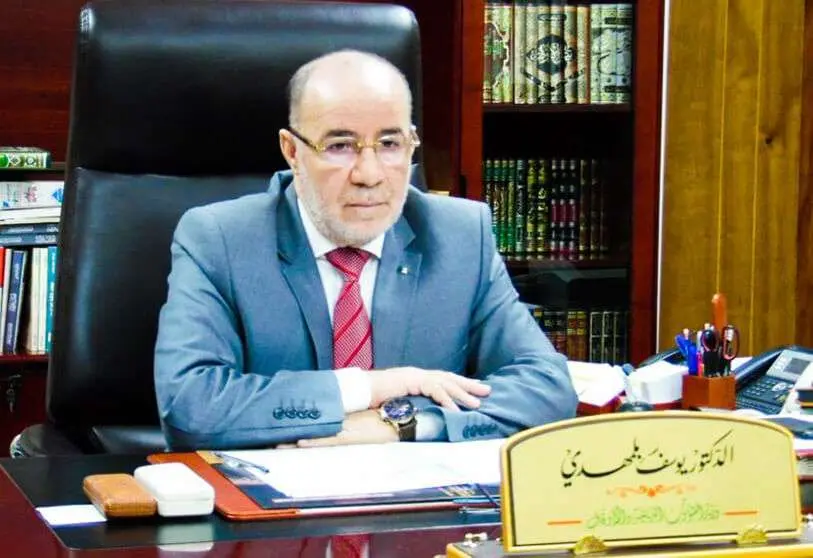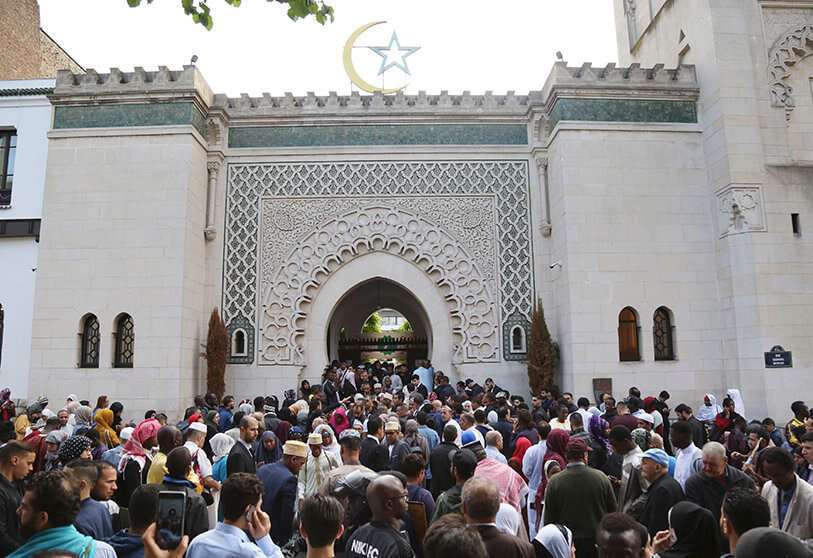Argelia usa la Gran Mezquita de París para la confrontación diplomática

The diplomatic rift between Algeria and Morocco is having a major impact, as was to be expected from such an important axis as the one that the two countries are - or were - part of. One of the first decisions was to turn off the gas tap to Morocco. The Algerian authorities announced last Thursday that they would not renew the contract for the Maghreb Europe gas pipeline, which transports Algerian gas to Spain via Morocco. The Algerian Minister of Energy and Mines, Mohamed Arkab, stressed "Algeria's total commitment to cover all of Spain's natural gas supplies through Medgaz" in statements to the Algerian press agency APS.
This was one of the first reactions, but certainly not the last. According to "Rue 20", the Algerian regime intends to use the Grand Mosque of Paris as a weapon of war in a new chapter of its disputes with Morocco. The Minister of Religious Affairs and Endowments, Youssef Belmahdi, called on the delegate imams of the Grand Mosque of Paris last Monday to be "benevolent platforms at the service of Algeria" in a campaign of hatred that his country is facing, according to the Algerian version.

Belmahdi considers the Paris Mosque as "a leading Islamic institution in the Western world, which presents a great moderate message". He added that they "can be good platforms for Algeria by awakening the national spirit and moderation, as well as encouraging the moral side in public life". This contrasts sharply with the confrontation he advocates against those who do not agree with the doctrine issued from Algeria, which is now using a double-edged sword to continue its dispute with Morocco, which, for the time being, has preferred to remain cautious in the face of Algerian attacks.
"We are not afraid of enemies, but it saddens us that our children interact with those who want evil in our country (...) You are competent people and we will follow your efforts, and the children of Algeria are used to accepting the challenge", are the words used by the Algerian Minister of Energy and Mines to refer to the Moroccans, according to the media "Rue 20". The recognition of the independence movement in the Kabylia region, which is why the Algerians have decided to unilaterally sever their ties with Morocco, has left Rabat in a complicated situation.

Morocco is at a crossroads after falling out with several countries, some of them neighbours, and having exposed its worst image on the international stage in the confrontation with Algeria. It is also worth recalling the diplomatic rupture with Germany in April this year as a result of an espionage affair, which has not been of great benefit to Moroccan interests either. Moreover, the entry of nationals, including minors, across the southern border with Africa in May to punish Spain for taking in Brahim Ghali, secretary general of the Polisario Front, has not gone down well in Europe.
On this point, Francisco J. Girao, director of the organisation Security and Defence-SegDef, assured in a statement to 'El Español' that 'the consequences of the migratory crisis, organised by Rabat, have not been worse diplomatically for Morocco because Spain and its soft foreign policy have not wanted them to'. Moreover, he believes that "Madrid could have done a lot of damage to Morocco's aggressive aspirations by increasing the harshness of its reaction in Brussels. It certainly would have counted on Germany (certainly not France)". Now, it is Algeria's attacks that are at the forefront of Morocco's foreign policy, which seems to be getting more complicated by the day.








